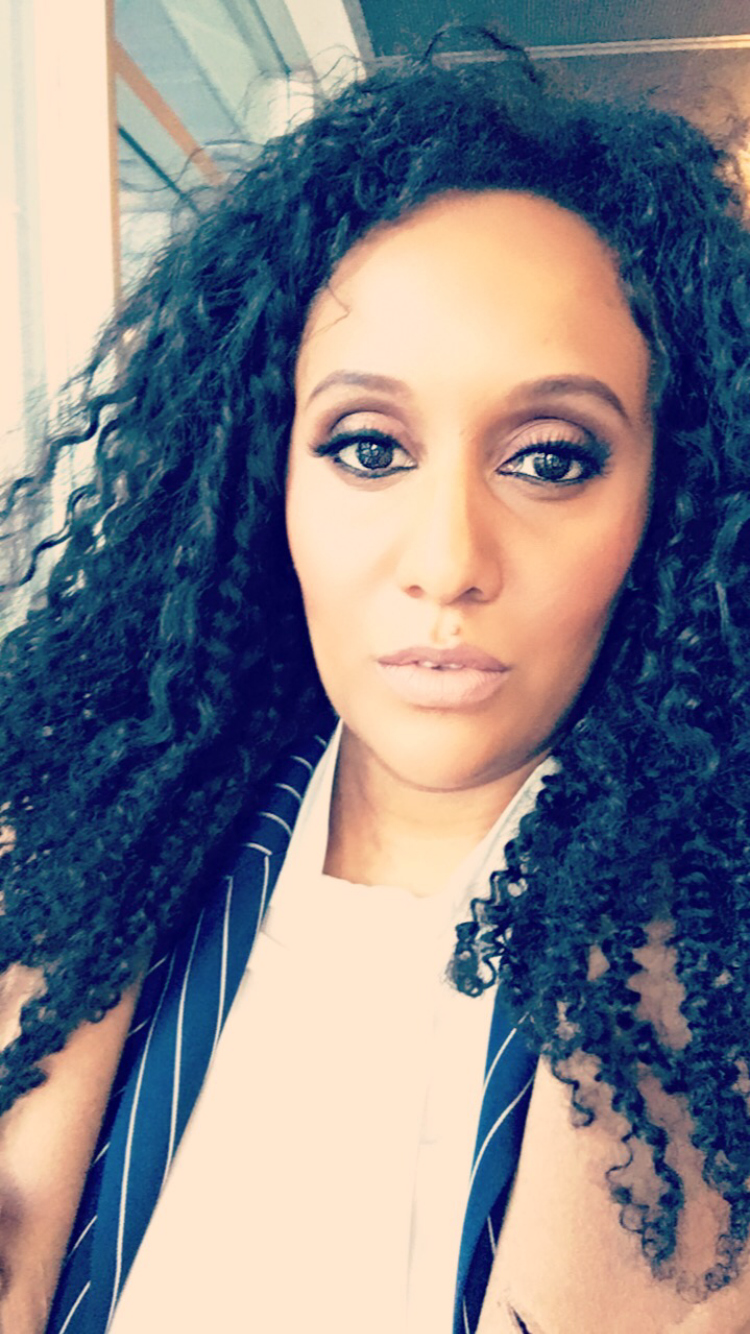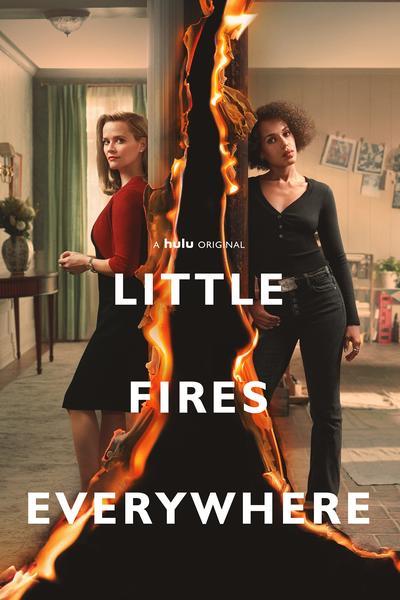Little Fires Everywhere



The Emmy nominations will be announced in less than two weeks on July 28 which is why we’ve seen all this virtual campaigning, and given the names involved, Little Fires Everywhere could be a strong contender.
Warning: Literally all spoilers
Little Fires Everywhere is a beautiful limited series, led by Reese Witherspoon and Kerry Washington, who both also served as executive producers on the project. They play mothers with little in common besides their belief that they are a great mother and the other is not. It is this damnation and judgement, clear projections from their deep emotional wounds and secrets, that is woven through the series, eventually leading to a realization of the metaphor and title Little Fires Everywhere. Each choice, lie, and betrayal along the way serves as an ember for the eventual fire. Add in an absolutely searing critique on past and modern day racism, and the cruelty of good intentions, and the result is a riveting show.
Set in Shaker Heights, Ohio, an affluent town known to be a leader in desegregation, Little Fires Everywhere tells the story of how privilege and power matter even when different people share a seemingly equalized environment. Reese plays Elena, a neurotic and waspy white woman with four kids and a husband who all orbit her under her critical eye and control. Kerry Washington plays Mia, a super secretive Black single mother, with one child, Pearl, her pride and joy. There is also another mother duo, Linda and Bebe, friends of Elena and Mia respectively who are secondary characters dueling over custody of a Chinese baby.
I love that the show was set in the 90s to demonstrate the nonsense of post-racial principles we are still dealing with today. The way in which we are trained to feel lucky that white people can pretend to be colorblind needs to be unpacked. Elena and her daughter Lexie show us that tolerance is often a performance, and more importantly a barrier to actual respect: while Elena thinks she’s a liberal, we are shown that her actual behaviour is far from progressive, especially when she’s exposed to the slightest bit of pressure. In this time of exploring Karen-ism, the timing is uncanny.
Another bonus for me was it being set at the exact same time I was in a predominantly white high school in Toronto. Details down to the music at the school dances and other cultural references, and the popularity of girls still live in my memory. My guess is a lot of Black students in white spaces can relate to the show, particularly the educational dynamic. In fact, this true and damning account of how the Shaker education system failed Black students written by a former white resident and student of a Shaker high school looks like it came directly from the show – that’s how accurately they portray this on the show. After all, Celeste Ng, who wrote the book from which the series is adapted, grew up and went to high school in Shaker Heights.
But nothing on the show works without the dynamic between Elena and Mia (Reese and Kerry) who work so well together and capture so many delicate nuances through their performances alone; every interaction and subsequent conflict between them escalates the tension that builds and builds until, well, the inevitable. It’s a gradual but unavoidable burn.
From their very first fight, they let go of all the fake pleasantries that kept their relationship at least functional. It happens after the disastrous party that Elena threw for her best friend Linda to celebrate the first birthday of baby May Ling, renamed Mirabelle. Once Mia found out this was the same baby that Bebe had abandoned at a fire station, she told her friend, who obviously could not resist going to her child. This interrupted another perfect event that Elena planned, and more crucially, police were called, triggering the upcoming custody battle. It didn’t take Elena long to connect Mia and Bebe, ironically learning that she is not the only one who invades spaces and boundaries to get information.
So Elena confronts Mia in an argument where race, class, and entitlement are front and centre. Like a textbook narcissist who argues in bad faith, Elena seems to have the most energy for a conflict if it’s right after some kind of power struggle with someone else – in this case after she unethically offers Bebe money for May Ling and when that fails, she tries to regain her power supply through Mia who is standing in her kitchen. Obviously, Elena gets dragged by Mia who calls out her blatant caucasity in thinking she knows the best interest of a child that is not hers. Which then leads to Elena criticizing Mia’s mothering of her own daughter, Pearl, because her desire to win an argument overrides any logic or sensitivity. In a scorching indictment about choices and motherhood, Mia retorts, “You didn’t make good choices, you had good choices, options that being rich and white and entitled gave you.”
Instead of humbling herself and learning something, Elena does that thing that white people do where they act surprised that race is being mentioned at all. This is a diversion tactic, and I’m thrilled the show constantly unpacks the science of microaggressions so thoroughly. It was mostly done through the queen of microaggressions and general cuntiness, Lexie, but I’ll get to her later.
Another haunting conflict scene between Elena and Mia occurred in the courthouse washroom, where Elena was illegally attempting to dissuade Mia from testifying (again, she failed) and she drops the bomb of knowing how Mia decided to keep Pearl despite being a surrogate. Reese Witherspoon takes her time with Elena’s twisted condescension, layering her performance to highlight that her character is totally unapologetic that she found Mia’s parents and creeped her life story so unethically. Mia is clearly crushed and it almost worked, but her integrity and Bebe’s pleas make her testify anyway and she goes on to provide a strong and emotional testimony while Elena looks on, shocked (again) that her tactics didn’t work and that, unlike what she just did, her husband Bill (Joshua Jackson) did not cross the ethical lines she did while he was cross-examining Mia.
And while I’m proud of Mia for standing her ground, the more we learn about her obsession with helping Bebe, the more its connection to her story with Pearl seems murky. Elena’s detective work unearthed Mia’s secret: the tragic death of her brother, her decision to become a surrogate to make enough money to pay for school, her absurdly strict parents who cruelly forbade her from attending her brother’s funeral because she was pregnant. Whether that justifies her keeping Pearl because she felt abandoned is a choice for the viewers (I think it’s just as unfair as Linda keeping May Ling). While I can’t relate directly to the specific circumstances, I do have experience with the absurdly stoic Caribbean household, with unexplained and constantly rigid rules that don’t work and come out of thin air or vague religious references. That’s why it bothers me that Mia chooses secrets and protection as her excuse to be so strict with Pearl. Either be devoted to being a free spirit who holds people accountable, or be strict with your daughter, I don’t like how she tried to do both. It’s supposed to be Elena that abides by the rules, but time and time again, this show uncovers the common ground between these starkly different women while highlighting how their differences hurt each other and those around them.
And the trial frames the issues of the show perfectly. There’s a mind-blowing amount of white entitlement tied up in Linda’s belief that Bebe’s abandoning of May Ling due to a clear episode postpartum depression is irrelevant, and that the only thing that matters is her rescuing and mothering the child. This court battle demonstrates the value white people can place on their good deeds and how everyone is expected to rally around them; that even a child can be bought with $10,000, heavy manipulation, and a wink to the power they yield over the immigration system, closely connected to law enforcement, and the education system. These connections are not meant to be concealed on this show and even with an amazing and culturally competent lawyer and compelling arguments, people like Bebe will always lose their children in a system that was not built to empower them. Bill said it himself to Elena, how even he knew that he would win a losing case speaks to not his legal expertise, but his knowledge of how the law is unfair and unjust in the first place.
Elena and Mia’s final argument was so heavy that the actresses recounted the day on set in various interviews. Elena was spinning out quickly, armed with the wrong information about her own daughter’s abortion as the last chance to outpower Mia while she was kicking her out of the apartment she rented to her. Of course, Mia let her know how disgusting it was that Elena couldn’t be there for Lexie’s abortion aftercare because she was gallivanting with Mia’s parents and gathering dirt that was none of her business, telling this woman how misplaced, ridiculous, and dangerous her antics are. It’s the takedown the audience is waiting for before the actual and physical takedown of Elena’s home.
But while Elena and Mia are the nucleus of this story, the warning character in this story, as a reflection of our times and a reminder of what’s at stake, is Lexie. She is Elena’s mini-me, astoundingly lacking in self-awareness just like her mother, played beautifully by Jade Pettyjohn. And just like her mother, Lexie believes herself to be more progressive than she actually is – because she’s dating Brian, a Black boy (played by Stevonte Hart). But this relationship only empowers her macroaggressions towards Black people (how can I possibly be racist if I’m dating a Black person?) and these macroaggressions accumulate over the course of the series, each one worse than the last right up to when Brian finally breaks up with her.
Like Lexie, I was waiting for him to just do it already. He was bothered at the onset when she stole Pearls discrimination story to get into Yale, but he had to call her out a bunch of times and witness more to finally name her behaviour for what it is. I know he is supposed to be seen as some kind of woke hero, but it doesn’t go unnoticed that he reaped the benefits of being with Lexie at the expense of the target of her microaggressions, Pearl and other Black women. Just another way Black men often act as the shield that Black women are actually providing while allowing to weaponise their association with them to conceal their biases. In the end, the show offers hope that Lexie wants to change, especially when she tells her siblings they are becoming like Elena before they burn down the house. Do the Lexies of the world inevitably become Karens? Little Fires Everywhere gives them a chance to see themselves before they do.
